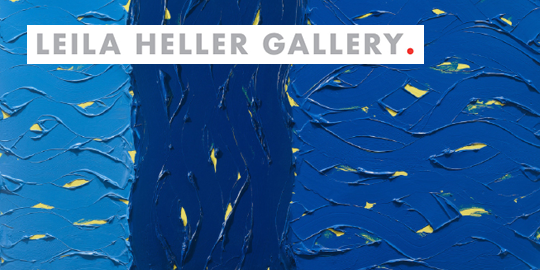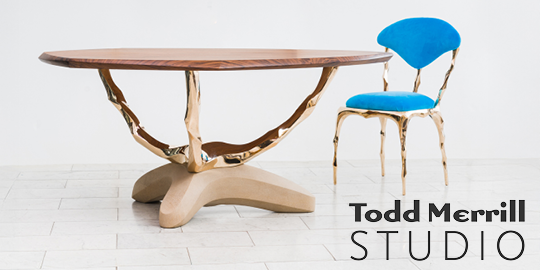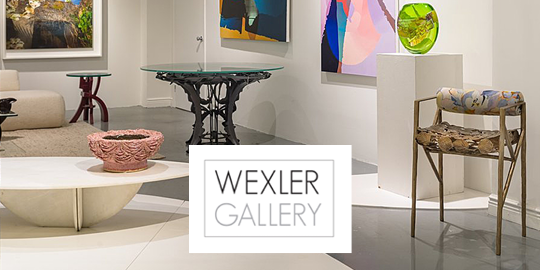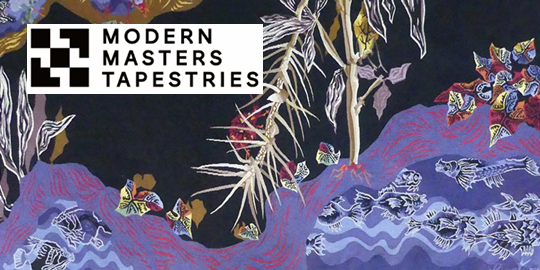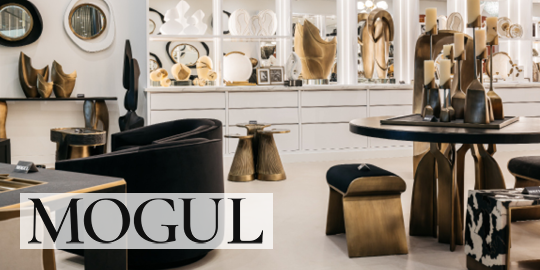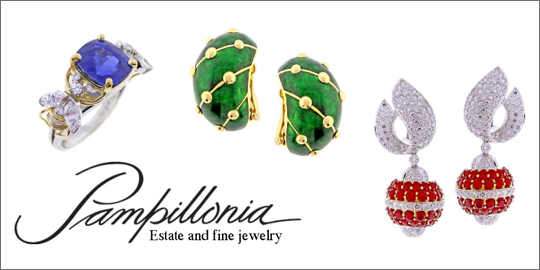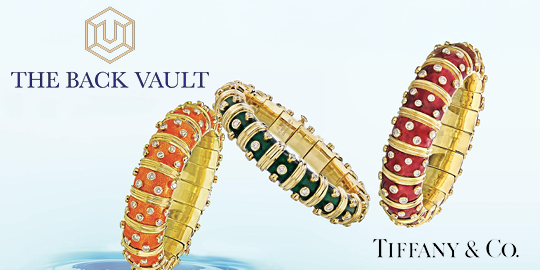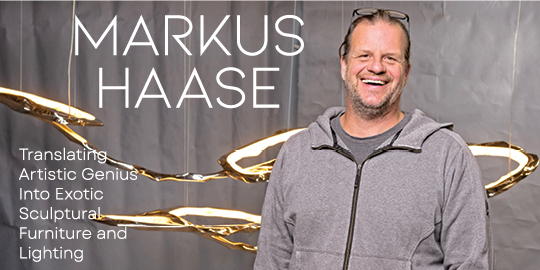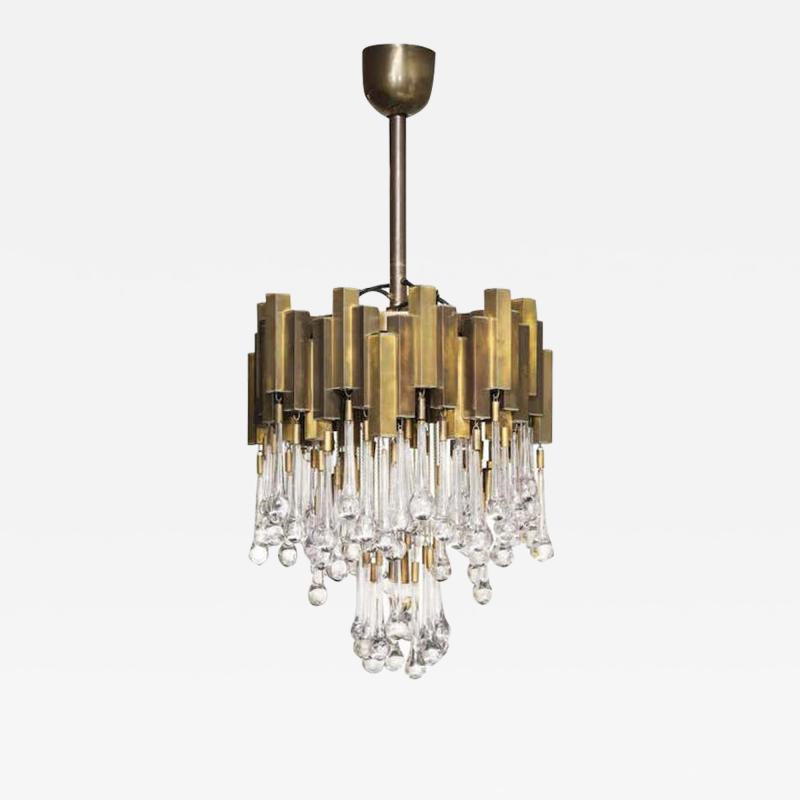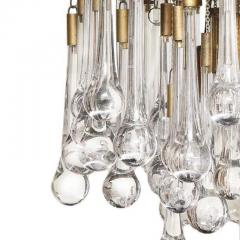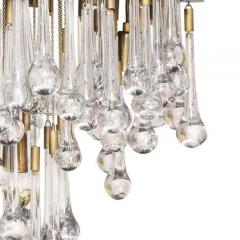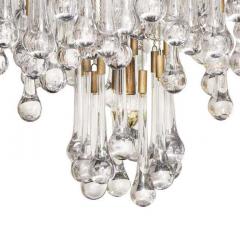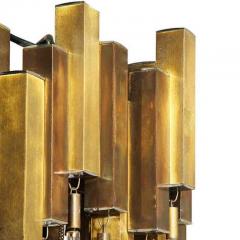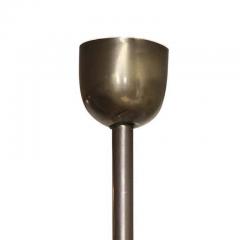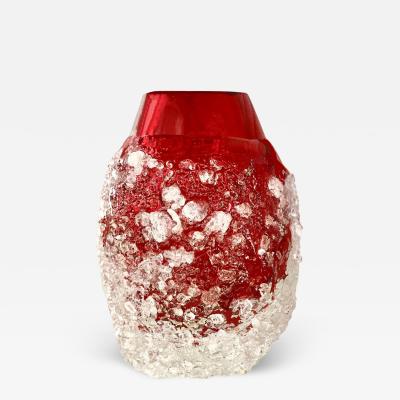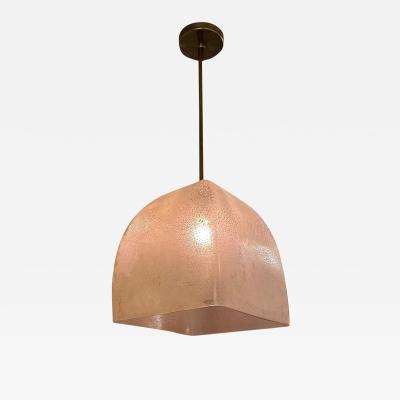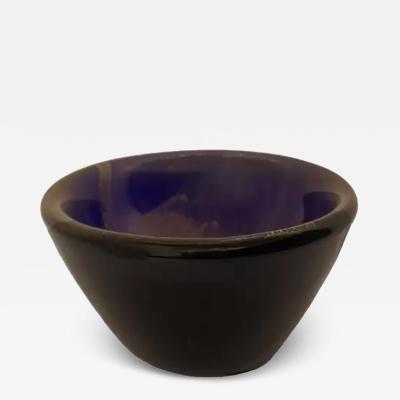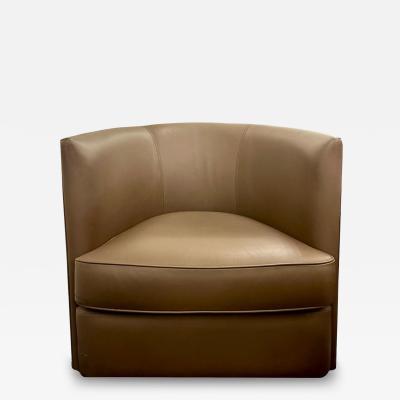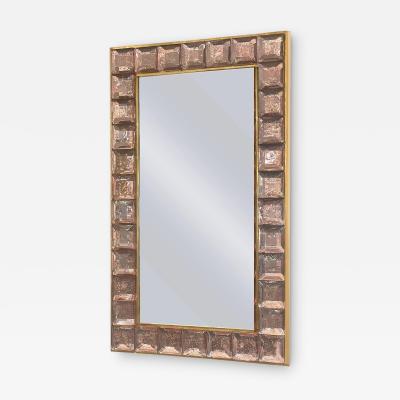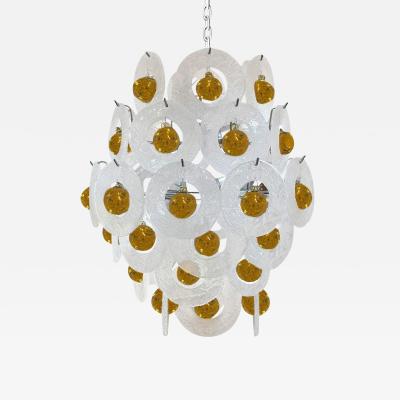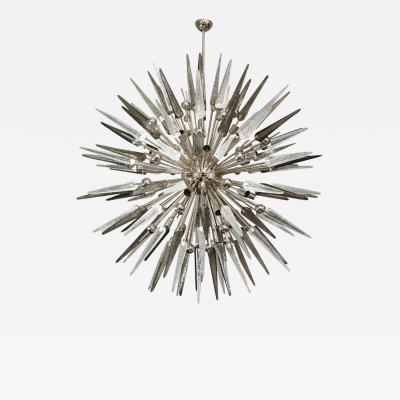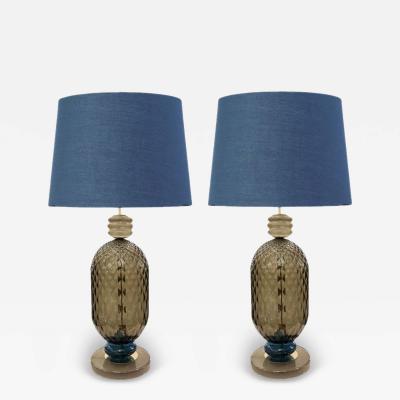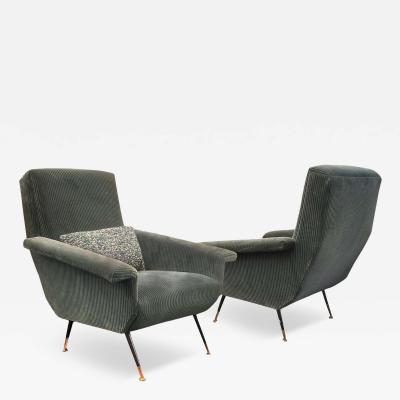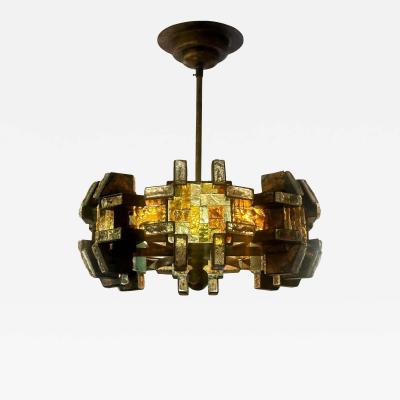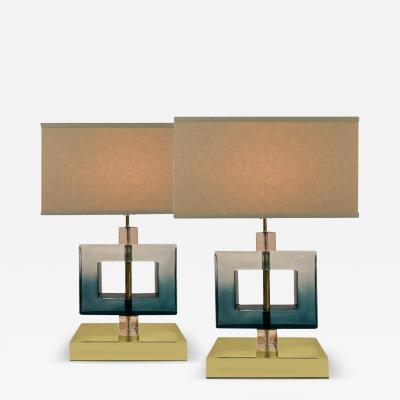Willy Rizzo for BD Lumica Glass Teardrop and Brass Pendant 1970's
-
Description
Exceptional Murano glass pendant with Venini tear drops and brass frame by Willy Rizzo for BD Lumica, Italy 1970's. A remarkable chandelier with hand-blown glass and cubist frame. Matching sconces available.
Gaetano Sciolari
The work of celebrated mid-century Italian lighting designer and entrepreneur Angelo Gaetano Sciolari became widely popular in the United States during the postwar years and strongly influenced lighting makers around the world. The sculptural forms and striking geometric details of his vintage floor lamps, chandeliers and other fixtures fit seamlessly into the mid-century modern and Hollywood Regency interiors of the day.
Sciolari formally studied architecture but also pursued filmmaking for a short period. When his father passed away in 1949, Sciolari took the reins at his family's company, Sciolari Lighting, which had been in business in Rome since 1892. The manufacturer expanded considerably under Gaetano’s leadership. For one, pioneering American lighting company Lightolier, in New York City, began to import the Italian brand’s lighting for the U.S. market, and Lightolier’s star designer, Gerald Thurston, was significantly influenced by Gaetano’s work. In the 1970s, Americans looking to add provocative fixtures created by Gaetano Sciolari to their living rooms could find them in Lightolier catalogs.
Sciolari initially crafted lamps and sconces that bore the hallmarks of traditional Italian design. But during the 1950s, when he would become the in-house designer for legendary Milan lighting manufacturer Stilnovo — one of the leaders of Italian postwar design — he created revolutionary fixtures that endured as his best-known work.
Sciolari drew on a range of influences — enthusiasts see the imprint of Art Deco, brutalism and more in his lighting — and designed futuristic Space Age chandeliers, ceiling lamps and pendants for Stilnovo as well as Stilkronen and S.A. Boulanger that defied the conventions of the time. A dizzying array of materials and finishes characterizes the designer’s work, while geometry is pronounced in each sculptural fixture — there are blown opal glass spheres, polished chrome tubes and brass square bulb holders. These combinations were critical to the development of dazzling lighting that proves eye-catching in any space decades later.
Venini
Beginning in the 1930s — and throughout the postwar years especially — Venini & Co. played a leading role in the revival of Italy’s high-end glass industry, pairing innovative modernist designers with the skilled artisans in the centuries-old glass workshops on the Venetian island of Murano. While the company’s founder, Paolo Venini (1895–1959), was himself a highly talented glassware designer, his true genius was to invite forward-thinking Italian and international designers to Murano’s hallowed workshops to create Venini pieces — among them Giò Ponti, Massimo Vignelli, Finnish designer Tapio Wirkkala, Thomas Stearnsof the United States and Fulvio Bianconi.
Paolo Venini trained and practiced as a lawyer for a time, though his family had been involved with glassmaking for generations. After initially buying a share in a Venetian glass firm, he took over the company as his own in 1925, and under his direction it produced mainly classical Baroque designs. In 1932, he hired the young Carlo Scarpa— who would later distinguish himself as an architect — as his lead designer. Scarpa, working in concert with practiced glass artisans, completely modernized Venini, introducing simple, pared-down forms; bright primary colors; and bold patterns such as stripes, banding and abstract compositions that utilized cross sections of murrine (glass rods).
Paolo Venini’s best designs are thought to be his two-color Clessidre hourglasses, produced from 1957 onward, and the Fazzoletto (“handkerchief”) vase, designed with Bianconi in 1949. Bianconi’s masterworks are considered by many to be his Pezzato works — colorful vases with patterns that resemble those of a patchwork quilt. Other noteworthy and highly collectible vintage Venini works include Ponti’s dual-tone stoppered bottles (circa 1948); rare glass sculptures from the Doge series by Stearns, the first American to design for the firm; Vignelli’s striped lanterns of the 1960s; the Occhi vases with eyelet-shaped patterns by Tobia Scarpa (son of Carlo); and, with their almost zen purity, the Bolle (“bubbles”) bottles designed by Wirkkala in 1968.
With these works — and many others by some of the creative titans of the 20th and 21st century — Venini has produced one of the truly great bodies of work in modern design. -
More Information
Documentation: Documented elsewhere (similar item) Notes: Creator: Venini (Workshop/Studio), Gaetano Sciolari (Designer) Origin: Italy Period: 1950-1979 Materials: Brass, Murano Glass, Hand-Crafted Condition: Good. Wear consistent with age and use. Creation Date: circa 1970 Styles / Movements: Modern Dealer Reference #: VL8075 Incollect Reference #: 661870 -
Dimensions
W. 20 in; H. 22 in; D. 20 in; W. 50.8 cm; H. 55.88 cm; D. 50.8 cm;
Message from Seller:
Venfield is a furniture and lighting gallery on the Upper East Side of NYC. The Venfield collection consists of dramatic "made to order" chandeliers and sconces as well as finely crafted, custom made case pieces.


